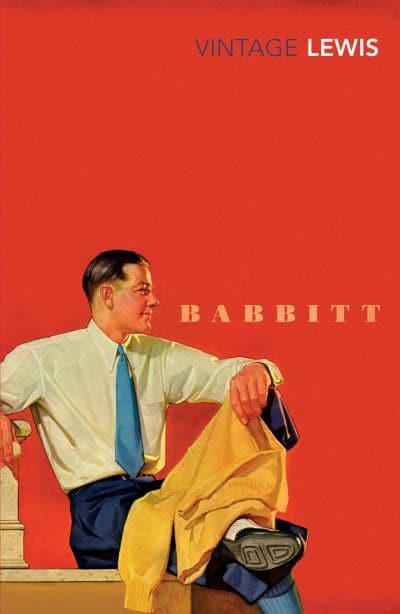Book Review: Babbitt, by Sinclair Lewis (1922)

Yes, I am "reviewing" a book that's nearly 100 years old. I don't know why that seems funny right now, but don't expect me to say **SPOILER ALERT** or anything. You've had your entire life to get around to reading Babbitt, by Sinclair Lewis...which I can't really recommend anyway.
You already know where this review is going: Babbitt sucked. Why?
For one thing...it's more of a character study than a book. For nearly 300 pages we read about the life of George Babbitt, a 46 year-old real estate salesman from the town of "Zenith" -- a fictitious mid-western city that could very easily be Indianapolis, except he mentions Indianapolis in the book. Babbitt is middle-of-the-road in every way. His politics, his married life, his professional life, his ambitions, even the ways he has fun or gets angry -- even the way he "rebels" against his staid bourgeois existence -- are all typical of what was the 1920s (and probably 2020s) middle-American "everyman."
Okay, great...but Sinclair Lewis took 300 pages accomplishing what could have been accomplished in 30 pages (if not 30 words, like I just did). He took 300 pages taking us through two years of Babbitt's life, but neglected to spend even a single page developing a plot. Hence, there is no plot. And the book is boring as hell. I made it through half, then skimmed the rest.
I only decided to read Babbitt because throughout the years the term "Babbittry" or even just the name Babbitt itself, has come to stand for people or acts that reflect hollow complacency and materialism. If you haven't heard this term slung around yet, keep your ears open. You will. Words and terms like this have a way of popping up just after you've learned about them.
Somehow Sinclair Lewis managed to create a cultural cliche that has endured for nearly 100 years, without actually writing a good book. I can only believe this must have happened because, back in the 20s (that's the 1920s...can we talk about the fact it's already the 20s again? Aye yai yai) books were one of the only sources of entertainment, right up there with whatever they did in the 1920s other than read books...listen to the radio? Watch 'silent movies'? Tell stories? Therefore people read a lot more books and you could get famous, or at least have a career, even just by writing bad books.
Don't waste your time reading Babbitt. Trust me. I've done the work, so you don't have to. Just read the Wikipedia entry on the book -- skip to the part on Babbittry, if you want to save even more time -- and you'll be well equipped to sound super smart and literary when you sling the term around as part of your every day speech. After all, that's what reading literature is really about: being able to sound smart.

Comments
Babbit is a timeless condemnation of dangerous mindless conformity.